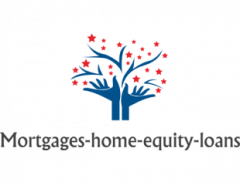In today’s fast-paced and highly competitive business environment, effective leadership has become a critical factor for organizational success. The role of executives in guiding companies toward growth and innovation cannot be underestimated. However, even the most talented leaders can benefit from guidance and support to maximize their potential. This is where executive coaching comes into play. Executive coaching has gained significant traction in recent years as a powerful tool to enhance leadership capabilities, foster personal growth, and drive organizational performance.

This article delves into the world of executive coaching, exploring its purpose, benefits, and critical considerations.
- Understanding Executive Coaching:
Executive coaching is a collaborative and confidential process that focuses on developing leadership skills and unlocking an executive’s full potential. Unlike traditional training programs, coaching is tailored to individual needs, addressing specific challenges and opportunities. It involves a partnership between an experienced coach and an executive to improve performance, enhance self-awareness, and create lasting behavioral change.
- The Role of an Executive Coach:
An executive coach serves as a trusted advisor and sounding board for executives. They provide unbiased feedback, challenge assumptions, and offer valuable insights to help leaders navigate complex business landscapes. A skilled coach employs various techniques, including active listening, powerful questioning, and goal setting, to facilitate self-discovery, promote learning, and encourage accountability.
- Benefits of Executive Coaching:
a) Enhanced Leadership Skills: Executive coaching helps leaders refine their skills, such as strategic thinking, decision-making, communication, and emotional intelligence. By focusing on individual strengths and areas for improvement, coaching enables executives to become more effective and adaptable leaders.
b) Increased Self-Awareness: Self-awareness is a cornerstone of leadership excellence. Through coaching, executives gain a deeper understanding of their strengths, values, and blind spots. This heightened self-awareness enables them to lead with authenticity, make better-informed decisions, and build stronger relationships with their teams.
c) Accelerated Career Growth: Executive coaching can be a catalyst for professional growth and advancement. By addressing specific development needs, coaching empowers executives to overcome obstacles, seize opportunities, and reach their full potential. The personalized guidance and support provided by a coach can accelerate career progression and open new doors for leadership roles.
d) Improved Performance: Coaching helps executives identify and overcome barriers to high performance. By setting clear goals, creating action plans, and receiving ongoing support, leaders can overcome challenges, improve their skills, and achieve optimal performance. This translates into improved team performance and organizational outcomes.
e) Increased Resilience and Well-being: Leadership demands can take a toll on executives’ well-being. Executive coaching helps leaders build resilience, manage stress, and find work-life balance. By promoting self-care and self-reflection, coaching fosters overall well-being, leading to greater job satisfaction and long-term success.

- Key Considerations in Executive Coaching:
a) Trust and Confidentiality: The coaching relationship is built on trust and confidentiality. Executives must feel comfortable sharing their concerns, aspirations, and challenges without fear of judgment. A reputable coach adheres to strict ethical standards and ensures the privacy of coaching sessions.
b) Alignment with Organizational Goals: Executive coaching should align with the strategic objectives of the organization. The coaching process should focus on enhancing leadership capabilities that contribute to the company’s vision, mission, and values.
c) Measurable Outcomes: To gauge the effectiveness of coaching, clear goals and objectives should be established at the outset. Regular assessments and feedback mechanisms can measure progress and demonstrate tangible results.
d) Commitment to Continuous Learning: Executive coaching is an ongoing process that requires dedication and commitment from both the executive and the coach. The willingness to learn, grow, and embrace change is essential for deriving maximum benefit from coaching.
Learn more at Wiki as well.

